Regulation of information provision for pension choices: Australia and the Netherlands compared
Around the world there has been a shift in retirement saving and benefit arrangements from public to private provision, and from traditional defined benefit (DB) plans to arrangements where individual pension fund members are required or encouraged to take responsibility for the accumulation and decumulation of their retirement savings.
Australia was an early mover with the introduction in 1992 of compulsory employer contributions into individual accounts in private pension funds (called superannuation funds) under what is known as the Superannuation Guarantee. Australian retirement savers are able to choose their superannuation fund, the investment options for their contributions and accumulated savings, whether to top-up mandatory employer contributions with voluntary savings, whether to opt-out or modify default life and disability insurance, and how to decumulate their retirement savings. Those who don’t choose a superannuation fund are placed in a regulated default fund
(known as a MySuper product). Following recommendations of the 2014 Financial System Inquiry (FSI 2014), the government is working on a quasi-default decumulation product, which will be known as a MyRetirement product (Treasury 2016).
This degree of flexibility and choice is not yet available in the Netherlands, although aspects of benefit choice are offered by some pension funds. At the national level greater member choice in accumulation and decumulation has been proposed by several Dutch political parties and is increasingly part of the reform debate (Bovenberg and Nijman 2017). As retirement savers become more responsible for their own retirement provision they will need to be supported in the consequent complex lifecycle decisions. Typical avenues of support include choice architecture (such as mandates and defaults), information provision (through financial product disclosure regulations), initiatives to improve financial literacy and regulatory frameworks for financial advice.
In this paper we focus on regulated information provision. We consider the regulatory frameworks for prescribed information at the (pension and superannuation) fund level, as well as specific information provided to members about their accounts and benefits. In this context the paper has the following aims:
• To explain, compare, and contrast the regulation of pension information in Australia and the Netherlands;
• To survey the academic literature on the effectiveness of regulated information disclosure in Australia and the Netherlands; and
• To draw lessons for the Netherlands in the context of potential reforms to the Dutch pension arrangements.
We note that the discussion in this paper relates specifically to regulated information provision. It does not extend to marketing materials or other sources of information provided in print or in digital formats by pension and superannuation funds, government agencies, representative bodies, financial institutions or other entities.
The paper is set out as follows. Section 2 describes the retirement income arrangements in Australia and the Netherlands. In Section 3 we outline the regulatory framework for pension information in Australia and the Netherlands and in Section 4 review the relevant academic literature. In Section 5 we evaluate the effectiveness of current approaches to the regulation of pension information and conclude in Section 6 with lessons for the Netherlands.


